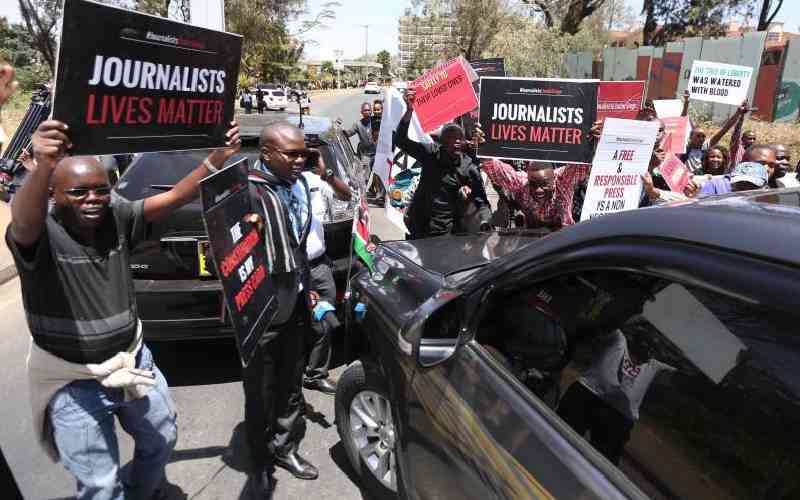×
The Standard e-Paper
Home To Bold Columnists

Journalists are still facing threats and information in the course of their work, a meeting heard.
This is despite freedom of the media and access to information being enshrined in the Constitution. The threats are by state actors and non-state actors in a bid to silence journalists and dissuade them from bringing those in power to account.






